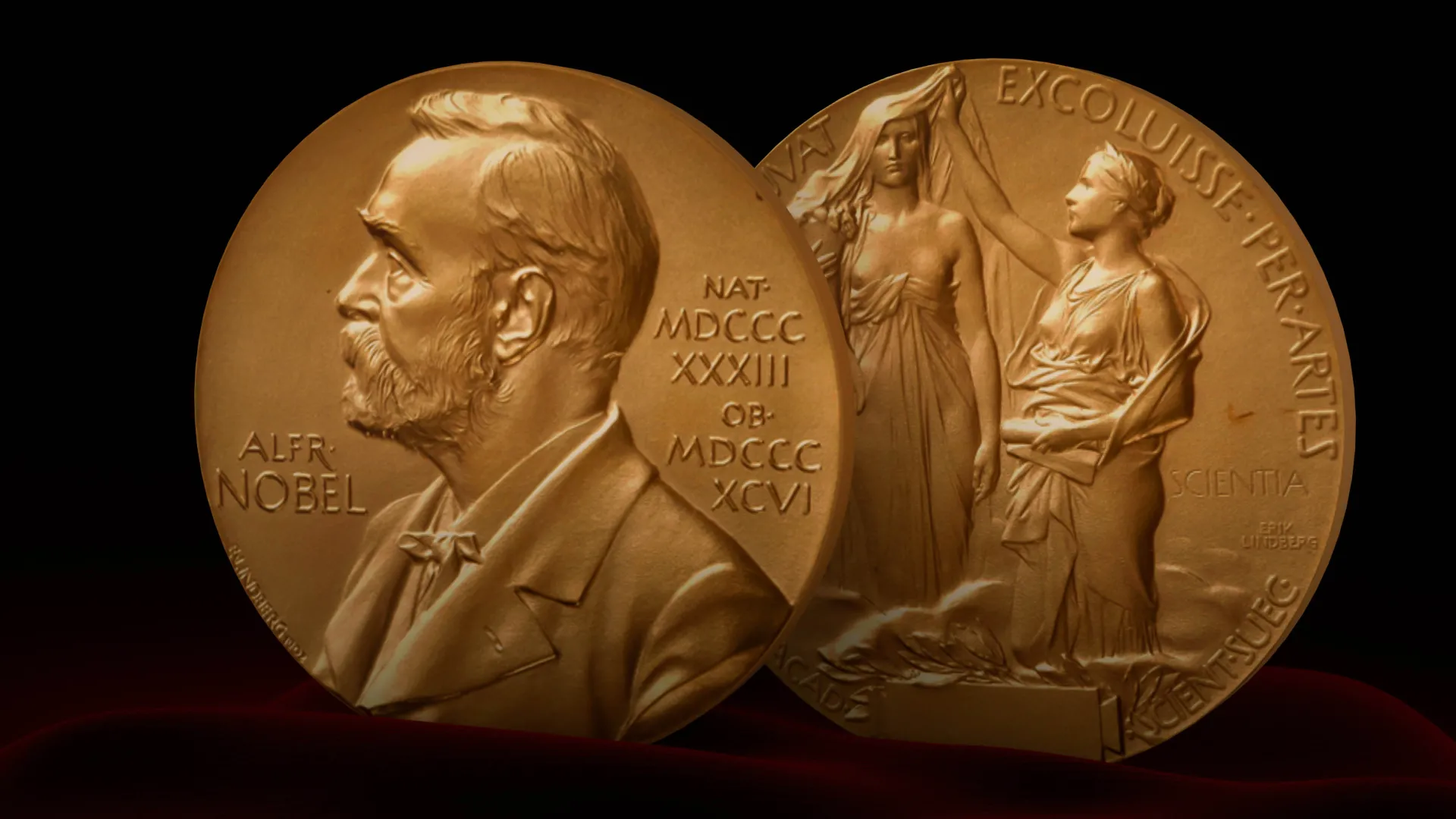Joe Gutierrez | CSUSB Office of Strategic Communication | (951) 236-4522 | joeg@csusb.edu

With the Nobel Prize award ceremonies just a few weeks away, the Cal State Sam Bernardino College of Natural Sciences is hosting a one-hour event on Thursday, Nov. 18 , to help shed light on several scientific discoveries being recognized and why they have – in the words of the prizes’ founder – “conferred the greatest benefit to humankind.”
The College of Natural Sciences Presents Nobel Prize Talks will be held during Coyote Hour (noon-1 p.m.) in the Physical Sciences Building, Room 10 (PS-10).
Attendees are asked to register for the event beforehand using the event’s Qualtrics registration link, and they can visit the event’s Coyote Connection post for further details.
Kimberley Cousins, chair and professor in the chemistry and biochemistry department, will discuss the recipients of the Nobel Prize in chemistry and the research it recognizes. Michael Chao, chair and professor in the biology department, will discuss the recipients of the Nobel Prize in physiology or medicine and the discovery it honors.
“The Nobel Prizes for the natural sciences are always a big highlight, and such significant discoveries deserve to be recognized for the vital part they play in our understanding of humanity, the world, and the universe at large,” said Sastry G. Pantula, dean of the College of Natural Sciences. “I am so proud to have our esteemed faculty and academic leaders share their perspectives on these scientific achievements in simple terms with all of us, and why they are worthy of our attention.”
The Nobel Prizes are a series of annual awards given in the fields of physics, chemistry, medicine, literature, and peace, and were first awarded in 1901. Alfred Nobel, a Swedish business and the inventor of dynamite, left most of his fortune to launch the awards with directions in his will that they be given to people “who have conferred the greatest benefit to humankind.” Prize winners are called Nobel laureates, and each prize can be awarded to up to three individuals. The Sveriges Riksbank Prize in Economic Sciences in Memory of Alfred Nobel was first awarded in 1969, according to the same principles as the Nobel Prizes.
Cousins, who was named CSUSB’s 2019-2020 Outstanding Professor, will talk about Benjamin List and David MacMillan, the recipients of the Nobel Prize in chemistry for their research on asymmetric organocatalysis, or the acceleration of chemical reactions to make “handed” products using “handed” organic compounds. Many biological molecules come in two “handed” versions – mirror images of each other that are not interchangeable (similar to a right hand and left hand) – and this “handed” property determines how they interact with other molecules.
Cousins teaches organic chemistry, and her research interests include computational organic materials science, green organic synthetic methodology, physical organic chemistry, computational organic chemistry, and chemistry education.
“This year's Nobel Prize in chemistry recognizes two scientists who saw a simple solution to a complicated problem—how to make ‘handed’ molecules at reduced financial and environmental costs by mimicking nature,” Cousins said. “Their discoveries are being used to make ‘handed’ medicines and consumer products safely and with higher purity than was possible two decades ago.”
Chao will discuss David Julius and Ardem Patapoutian, the recipients of the Nobel Prize in physiology or medicine for their discoveries of the receptors for temperature and touch, which explain the molecular basis for sensing heat, cold, and mechanical force.
Chao teaches courses in cell biology, genetics, neurobiology, and molecular genetics. His research interests includes understanding the molecular basis of animal behavior, particularly in understanding neural plasticity at the molecular and cellular levels
“The ability to sense touch and temperature is such an integral part of the human experience,” Chao said. “It’s amazing to think that we are starting to delve into the molecular details of human sensation.”
In addition to the prizes in chemistry and in physiology or medicine, the Nobel Prize in physics was awarded to Giorgio Parisi, Klaus Hasselmann, and Syukuro Manabe for their research shaping our understanding of how the Earth’s climate is changing and how human activity is influencing those changes.
The 2021 Nobel Prize award ceremonies are scheduled for Dec.10, the anniversary of Nobel’s death, in Stockholm, Sweden.
For more information about the college’s biology programs, visit the Department of Biology homepage. For more information about the college’s chemistry and biochemistry programs, visit the Department of Chemistry and Biochemistry homepage.